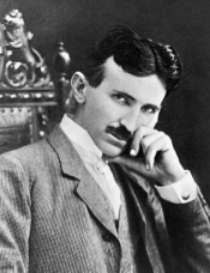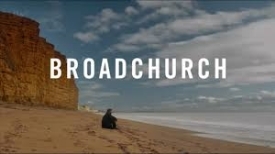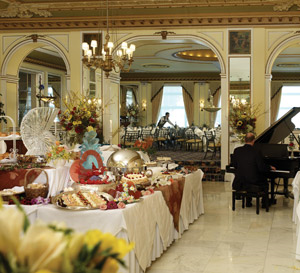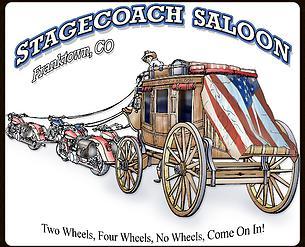Dom Testa's Blog, page 10
April 2, 2016
No new ideas? Or just low expectations?
Oh goody, there’s a new entry in the Superman/Batman movie series. The third Divergent film debuted recently. The seventh Star Wars movie splashed in December.

Scan the top twelve box office hits of 2015 and you’ll see that nine of them were sequels, reboots, or retreads. Two others were animated hits aimed at kids. That leaves one - one! - non-cartoon film in the top dozen that was an original idea (The Martian, based on Andy Weir’s fantastic and fun novel).
This likely will launch a new round of complaints that there are no new ideas coming out of Hollywood. I used to be that guy, the one who grumbled about “no new ideas.” How hard could it be, I said, for producers to find something fresh and exciting? But over the past year or two my thinking shifted. I no longer point the finger at Hollywood producers, who make the same movies over and over again. Instead I’m pointing fingers at you and me. We get exactly what we demand . . . and my guess is that we simply don’t demand enough.
Expectations
Think about it: There are billions of dollars riding on the outcomes of movies and television shows, and the decisions made each day in Tinseltown factor in one - and only one - line on the ledger: the one at the bottom. Very few, if any, big shots in the industry really care what’s flashing by on the screen at twenty-four frames per second. No, they will consistently produce whatever it is that you and I plunk down our money to stare at for two hours. If you dropped three bucks to watch Rocky, then five bucks to watch Rocky III, and seven bucks for V, then they feel reasonably comfortable that you’ll be stupid enough to blow ten bucks for the latest installment (cleverly disguised under the title Creed). You told them that you would.
It all comes down to expectations and - in the long run - what you and I demand. If we turn up our noses at a remake, it’s virtually guaranteed you’ll never see the producers touch that hot stove again. It has nothing to do with the idea, you see; it’s all about your wallet, the most powerful weapon in the western world.
Young (Gifted) Lions
Sure, there’s a lot of new garbage out there, but there are also thousands of gifted writers who slave over their keyboards daily, cranking out unique, interesting, and entertaining scripts and novels. Imagine how they feel when they sweat out a masterpiece and have it sit in the slush pile while the moguls sign up to do a fifth Die Hard movie.
And then imagine how those talented young writers react to rumblings that 20th Century Fox hoped this fifth installment would successfully introduce the son of action hero John McClain . . . so we could look forward to countless additional sequels.

(A Good Day to Die Hard was considered a flop by most standards - and yet worldwide returned more than $300 million dollars on a $92 million dollar budget. Who’s laughing now?)
I could go off about certain styles of music, too, but the same reasoning applies: “It worked once, let’s do it again.” Ditto for reality television shows, where the same template is dragged out and repeated again and again, because tens of millions of Americans refuse to find anything else to do with their lives, and somehow feel compelled to sit and watch the same drivel incessantly. Stop watching it, and they’ll make something different. It’s that simple.
So when you see a continuous march of movie remakes, or you hear the exact same clapping track on song after song, don’t blame the artists or the producers. You gave permission and - even worse - you gave them funding to keep at it. Meanwhile, brilliant writers and musicians languish in the shadows, hoping that consumers will snap out of it. Want fresh, new ideas? Then hold out, and demand them. In this case, you truly get what you pay for.
March 24, 2016
Solitude and Creativity
There are few things that make me cringe more than receiving notice of an upcoming “brainstorming” meeting. What the notice should say is, “Please join our group as we stare at each other and accomplish little.”
I’m sure there have been some great ideas that have sprung from these sessions, and there likely are constructive ways to collectively dream up a winner. But I’m an advocate for getting away from the group in order to truly stimulate creativity.
For one thing, rules of courtesy often prevent someone from pointing out the weakness in an idea. Or, the majority of the group might detest an idea but don’t want to rock the boat. (Do an online search of “the Abilene paradox” to see an example.)
I Vant To Be Alone
Creativity demands solitude. As legendary inventor/genius Nikola Tesla said, “Be alone - that is the secret of invention. Be alone - that is when ideas are born.”

From a young age students are often herded together to come up with solutions to problems, when in fact they could each be supplied the facts and then sent off on their own to work it out. The same concept applies to so-called brainstorming sessions at work; it’s better to describe the problem, and then have everyone come to a meeting after they’ve each come up with a solution.
Consider creative writing and other artistic endeavors: group lessons can serve a purpose in some respects, but a mind flourishes when left to its own devices. If you have an interest in writing, the best thing you can do is demand alone-time.
That means putting away the electronic world and submerging into your own subconscious. I enjoy socializing with my friends as much as anyone, but when it’s time to write, you won’t find another soul in my house.
Loners and Hermits
“Without great solitude no serious work is possible.” Those are the words of Picasso, who knew a thing or two about creativity.

Sadly, the concept of solitude is being lost among many people. The notion of being truly alone has become alien; companionship is always just a text/tweet away. Society even stigmatizes people who want to be by themselves. Loners and hermits get a bad rap, and we often equate being alone with loneliness and sadness.
But that’s not right. Some of the most brilliant, creative minds we’ve ever known made their discoveries or rolled out their masterpieces when they were secluded from others. As Albert Einstein pointed out: “I take time to go for long walks on the beach so that I can listen to what is going on inside my head.”
You don’t need a beach, though. You simply need to find a quiet place in order to stir the ingredients for great ideas.
Creativity sparkles when the outside world is sealed off, not when people gather in a conference room.
March 7, 2016
First, Write
We live in an age where promotional hype outshines almost everything else. It has trickled down from national television programs to just about every creative outlet in the country. And, with the explosion - and undeniable power - of social media, it’s now easier than ever to hype a message to thousands - sometimes even millions - with a click or two.
But an important ingredient is often left out of the cake that eager artists are trying to bake: Good content.
This was briefly touched on in a post that I read on Bob Mayer’s blog, Write It Forward. On March 6, 2012, Bob was sharing some thoughts on the proliferation of ebooks, and he counseled enthusiastic authors to remember the most important element of a successful book, regardless of its format...and it’s not the promo video on YouTube.
It’s the actual content of the book.
Viral Schmiral
I receive at least a dozen or more requests each month to share my thoughts on writing and publishing with people who are anxious to write a hit book. But I’ve found that at least half of those requests focus almost exclusively on how often I Tweet, or how I set up my Facebook page, or how many times I send out a newsletter blast.
In other words, a personal fascination with social media - coupled with enough news stories about yet another ‘viral’ success - has too many writers not only putting the cart before the horse, but leaving the poor horse in the barn while trying to magically roll the cart into town with gimmicks.
When I respond to these requests with information about the writing process itself, or by asking how many hours a day they dedicate to the craft of composing meaningful and melodious paragraphs, you can hear crickets. Few writers, it seems, are interested enough in the nuts and bolts; now it’s all about “how can I blast enough eyeballs with my snazzy promo video?”
Peddling Garbage
Please don’t misunderstand: You need to be very good at spreading the word about your work. In fact, if you’re not willing to work that aspect of the business, you might as well consign yourself to writing as a hobby. But, on the flip side, peddling garbage is more than a little dangerous. If you’re able to convince a million people to check out your flash and pizzazz, they’ll ultimately still judge you by your writing (with some famous exceptions that we won’t name). When you finally secure those eyeballs, the payoff better be worth it, because you’ll never fool them again. They’ll remember your name, and for the wrong reason.
My advice is to dedicate just as much time and energy - if not more - to perfecting your writing skills as you do to your social media marketing. While I might dispute Anders Ericsson’s 10,000-hour rule (made famous in Malcolm Gladwell’s book Outliers), I can’t deny his basic premise regarding practice. Work each day to become better and better, and always aim to make your next manuscript better than the last one.
No one remembers a thing about Harper Lee’s marketing for Mockingbird. Did she even have any?
March 1, 2016
Boys and Books
Let’s see how long it takes you to realize my point from just a few snapshots of anecdotal evidence:
A teacher at an elementary school invited me to speak to her students. I looked at the school’s web site and saw that, between administration and faculty, there were forty-two people employed there.
Three were men.
I was asked to speak at a teen literature conference, where the focus was on getting kids interested in reading. The conference committee was made up of sixteen people.
None of whom was male.
I did an informal scan of the hundreds of faces filling the auditorium on the morning of the event. No, it’s not scientific, but I specifically looked for men in the room full of teachers and librarians.
Of the four-hundred-plus people in the room, I estimated about ten percent were men.
Oh, and my panel discussion? I was the lone male author, along with four women.
A Chick Thing
As a nation we’re desperate to “fix” education (a term I personally reject, but that’s another article). Test scores and - specifically - reading and literacy rates are pathetically low, and we holler to get more kids interested in reading. While my education foundation works with both boys and girls, I can tell you right now why the task is more difficult when dealing with boys.
They think reading is a “chick thing.” And, based on the stats I listed above, why wouldn’t they?
For the majority of young boys, their first exposure to books came from a parent reading to them, and it was likely their mother. One study indicated that as few as ten percent of fathers read to their sons.
In elementary school, where reading is initially taught, the statistics are glaring: some studies claim that, at most, sixteen percent of teachers are male, while others say the number is much lower, perhaps only nine percent. And the reasons for this can often be disturbing, especially when some men claim they’re worried about the perception of being a predator. How sad for all of us.
Everywhere boys look, books are associated almost exclusively with women. My publisher lined up a blog tour to promote my action/adventure series of books. It encompassed forty blogs - each devoted to books - in a forty day stretch, where readers could scan excerpts from the series and sign up to win a complete set of the Galahad books.
Thirty-eight of the forty book blogs are run by women. The remaining two are vague, and might very well be run by women...I just couldn’t tell by looking.
The Cycle Repeats
Don’t misunderstand me, I’m thankful for the passion that so many women bring to the world of books and literacy. But it’s pretty clear that boys - who are extremely sensitive to image and peer pressure - have few, if any, male role models when it comes to reading.
I salute the fathers who read to their sons; I celebrate the men who choose to work in elementary and middle schools; and I’m thankful for the adult males who openly promote the value of literacy to any young man in their sphere. But there aren’t enough of these men shouldering the load.
Undoubtedly the cycle repeats; boys, perhaps subconsciously convinced that reading is a “girl” activity, fall further behind in reading ability and soon lose interest, thereby becoming unable to provide mentorship to succeeding generations of boys. Breaking the cycle requires adult men to become an active influence, today. That means reading, encouraging their sons to read, and celebrating the power of books, regardless of the genre.
It requires, too, that society not stigmatize male teachers in elementary and middle school, driving qualified - and passionate - educators out of the field because of a fear of “inappropriate behavior.” We need all of the strong, masculine role models we can find - of all ethnicities - to once again encourage boys to immerse themselves in books.
It’s not a chick thing; it’s an enlightened thing.
February 16, 2016
Being Found Out
He’s a giant in the music business, the second-wealthiest entertainer in the world, worth more than half-a-billion dollars. His songs are adored and downloaded by people on every continent, from age 10 to 110. He’ll go down in history as one of the greatest composers of all time.
And yet, in a recent interview, he said he suffers from the same insecurity that many others admit to. Specifically, as he put it, he’s afraid of “being found out.” In other words, someday people will perhaps share the same doubts about his work that linger in his own mind and the game will be up. He won’t be able to fool anyone any longer.
And who is this alleged con artist? Paul McCartney.
I chuckled when I heard this, because I think Sir Paul speaks for an awful lot of people, especially creative types. Regardless of your industry or your aspirations, no matter how much success you have, there’s a little demon in your head who whispers “smoke and mirrors, man; smoke and mirrors. One day everyone will figure out that you’re a fraud.”
Fake It Till You Make It
Sure, I suppose there are some who do fake it. There’s even an old joke about “fake it till you make it,” but how many people can honestly pull that off for long?
What it really boils down to is this: You’re often your own worst critic - which is not necessarily a bad thing. Stumbling through life believing that everything you do or say is golden is . . . well, crap. Contrary to the preachings of today’s Self-Esteem Patrol, a lot of what we produce is crap.
But a lot of it is touched by magic. Through continuous effort and - this is key - continuous learning and evolving, we can produce greatness. McCartney might’ve slipped a few times, but we forgive him for singing “the dog-gone girl is mine” because he wrote Maybe I’m Amazed. We try to forget Ebony and Ivory because he belted out Hey Jude.
The Saddest Outcome
The day you allow the lows to blot out the highs you either (a) lose your compass and start working from a place of fear, or (b) stop trying altogether. And then it’s not others who are shutting you down and stifling your efforts; it’s all you - which is the saddest outcome of all.
So enough with this nonsense about being ‘found out.’ If you’re an artist of any kind (painter, musician, author, whatever) - or, for that matter, an accountant or an architect - sometimes you’ll stink it up. Just keep grinding away, keep producing, keep delivering your vision to the world. They may not like it - or they may love it.
The worst thing they can ever ‘find out’ is that you shackled yourself with doubt and maybe - just maybe - stopped short of your masterpiece.
February 13, 2016
The Quality Queue
Many years ago Bruce Springsteen released a song called “57 Channels (And Nothin’ On).” It was a rare flop for the Jersey rocker, perhaps because it was a little too obvious. He wasn’t telling us anything we didn’t know.
Television at that time seemed like nothing more than a wasteland of poor writing and even worse acting, a sludge pot of desperation, trying every trick and gimmick to lure a potential audience of millions, an audience made up mostly of adults exhausted after another dreary day at work, along with millions of teenagers open to almost anything that moved and spoke.
With a few exceptions, TV generally sucked.
So it’s interesting - and ironic, now that people have so many other choices and distractions to steer them away from the boob tube - that television has become . . . well, good. Instead of 57 channels, today it’s more like 557 channels - many of which are still horrendous collections of inane crap, sure.
A Broadcast Renaissance
But something happened. A few well-written, compelling shows got a foothold with a small-but-enthusiastic audience, and social media helped spread the word. Those programs spawned a few more, until suddenly it could almost be called a broadcast renaissance.

I used to watch practically NO television, other than newscasts and sporting events; I cancelled my satellite service because the screen sat dark most of the time. Now my Netflix queue is full of choices that I’ll never have enough time to watch. Someone will suggest another cool show that sounds terrific . . . but I still have to finish Broadchurch, or Deadwood, or Mad Men.
And I find myself torn over this: Is it a good thing that television finally has found itself with a glut of quality choices? Or is it a bad thing, offering me too many excuses to plop into the big chair? I can only watch so many episodes of The Americans on the treadmill, you know.
The Art of Storytelling
Deep down I feel like it’s a victory of sorts. It means there are more savvy writers and producers than ever before, more interesting ideas spawning fascinating character sketches. (I mean, really: A high school teacher cooking meth? You think that would’ve found it’s way onto the airwaves twenty years ago?)
It means the art of storytelling is alive and well. It means that (hopefully) the days of Two and a Half Men are on the way out, and we’ll get more House of Cards. Lots more.
And, most importantly, it means that appealing to the lowest common denominator is no longer the only way to find success, which, in turn, will encourage other bright young writers to raise the bar even higher and challenge the intelligence of viewers, rather than insult it.
So in the long run it’s a good thing. Note to Bruce: There’s finally somethin’ on.
January 30, 2016
Six Square Inches
Not long ago some family members took me to Sea World, which is required by law for tourists on their first visit to San Diego or San Antonio. (In Orlando you’re allowed an exemption only if you can prove you spent $1000 at Disney World.)
During the dolphin show, we gasped at the remarkable skills displayed by these gorgeous animals, marveled at the incredible training which must go into every production, and fought off dehydration with oversized sodas.
There’s so much to absorb during these shows, with multiple acts taking place at various spots, all at the same time. At one point, three colorful wild birds were released over the crowd, skimming just a foot or so over our heads as they flew a synchronized pattern inside the arena.
I noticed something interesting, however: almost half of the crowd around us never saw the birds. These people held up their phones, hoping to capture the essence of the show and to record it for posterity. And while that happened, they missed at least fifty percent of everything. Their faces were locked onto six square inches of a smartphone screen while the world zoomed past them.
They didn’t see the tandem jump over here, or the seals splashing the crowd over there. And they wouldn’t have noticed the aerial circus even if the birds had deposited a big Texas ‘Thank Y’all For Coming’ on their heads.
It made me realize how much of life is missed for the sake of recording one small thing . . . which, when lumped into the hundreds of hours of other ‘memories,’ will likely never be seen again.
Losing The Periphery
The ease and affordability of video recording devices has, in a way, become a curse. We’ve taught our kids that every single thing that happens must be recorded! In the process, we’ve trained them to view life through six square inches.
It’s contrary to the skills we developed to survive as a species. A good field of vision was critical; if our ancestors had walked through life with tunnel-vision, they’d have been dinner.
But today we’re caught up in the need to capture every moment, to store everything digitally. In doing so, our kids don’t notice things on the periphery. They’ve grown up watching life through a tiny screen. In fifty years all children will exit the womb cross-eyed.

Perhaps I’m an oddball these days, but I rarely - if ever - use my phone to record videos, and the few pictures I take are usually reserved for snarky Facebook posts. Everything that’s stored for posterity is done so using the greatest recording device on Earth: the human brain. It captures sights, sounds, and smells, and - most importantly - imprints them with an actual emotional connection.
Today, when I see a colorful wild bird, I do two things: (1) cover my popcorn, and (2) immediately recall the warmth of the day at Sea World, the smell of the flowers ringing the amphitheater, and the sounds of the cash registers emptying my wallet: all non-visual (video) memories.
And I remember the laughter of my family. I remember how the day felt. That’s something a smartphone can’t possibly record.
Losing Our Humanity?
I wish more parents flipped the priorities with their family. Maybe put more emphasis on actually living these moments together fully, without sacrificing a large chunk of the experience for the sake of a digital recording. Listen, waiting in theme park lines without a phone builds character.
Kids will become better observers, which will help them as they make their way through school and, ultimately, the working world. They’ll gain an advantage in not only gathering information, but in sorting it all out. Try talking to them afterwards about the experience, incorporating all five senses. Ask them how it felt. Reassure them that it’s okay to eat tuna; they weren’t part of the show.
When I think of trips I’ve taken where very few photos were snapped, my memories somehow seem more lush, more personal. I’ve realized that electronic devices are great - but only to a point. When they begin to replace our actual memories, they take part of our humanity with them.
We were built to process an entire field of vision, with a computer in our heads that gathers and analyzes everything in a split second. Life is much too beautiful and interesting. Besides, it’s unnatural to cram Shamu into six square inches.
Thumbnail image courtesy of Drew Hays
Additional image courtesy of Sebastien Gabriel
January 18, 2016
The Positive Password
I was asked to re-post this article, a piece that I penned about two years ago. It's just as timely today - and hopefully just as helpful. - Dom
Brian had an argument with his wife one morning, just before going to work. By the time he arrived at the office his feelings had already meandered this way and that, alternating between anger, frustration, and - finally - regret.
Sitting at his desk, he logged on to his computer and stared at the screen. Like many companies, security demanded that employees change their password every 45 days, and the pop-up notice informed him that today was the day.
That’s when the idea hit him.
He changed his password to: ForgiveMe&LoveAmy.
So, for the next six weeks, every time he logged on he would have a quick reminder thathe should be more forgiving of himself and more loving to his wife. It didn’t take long to realize how powerful this was. When another 45 days went by, he changed his password to Save$LoveAmy.
Brian created a ritual, one that he was guaranteed to follow through with every day. He set about to change his life, visually reminding himself of two things that could positively impact his world.
It’s a remarkably easy - and yet effective - technique. If you think about it, we generally grumble whenever we have to change our passwords; we’ve almost run out of clever ways to incorporate our dogs’ names or children’s birthdays. Why not use this obligatory task - one that we often dread - to subtly better ourselves?
It’s not like we don’t stare at screens all day.
And, since we all seem to require multiple passwords, you could tailor each one. Your office password might contain something about your profession that you’d like to improve. At home it could be something about your relationship. Maybe another could target your health.
With a new year it could be Walk10000! Or how about BePresent! Or ListenMore16!
Six weeks of positive impressions, followed by six more, then six more. For me, I’m going to start with Write800!, a gentle reminder of my target word count each day. It creates a digital mantra that you have no choice but to repeat again and again.
What if you couldn’t log on to Facebook without reminding yourself to LightenUp! The rest of us might never again have to read a political rant. (A boy can dream.)
I love the concept. Maybe one of my first passwords this year will be ThanksBrian!
December 10, 2015
The Human Network
In their song “Child of Vision,” the band Supertramp rattled off a quick line that is simple in structure, but profound in its message.
You watch the television, because it tells you that you should.
I used to laugh when I found myself, glassy-eyed, scrolling through an endless assortment of satellite TV channels, the guide spinning through line after line of options. Like most people, I’d been fooled into thinking that this continuous string of networks represented a bounty of choices for me. But, in reality, the choice began and ended when I hit POWER.
I watched the television because it not only told me that I should, but because it had created an artificial aura of community, one that exists in the vacant stares of millions who don’t want to be left out. There aren’t dozens of little networks flowing through the digital pipeline; there’s one giant, optical network, spanning from coast to coast, capturing its affiliates (you and me) and repeatedly reminding them that they must stay connected.
Joining The Tribe
I was a loyal affiliate for many years. Although the amount of screen time I invested in the human network was well below average - which today, between television and Internet, amounts to a staggering eight-plus hours every day - I was convinced I had to keep up with the rest of the country. I had to know who the judges ripped, or who was voted off, or what the winning answer was. I was a slave in crystal-clear high definition.

Perhaps the television show Survivor resonated so strongly with people in its first few years - before the basic formula was usurped and copied again and again - through its primal association with the word tribe. The contestants weren’t the only ones separated into these clusters; the viewing audience, whether they knew it or not, had coalesced into one giant tribe. It’s no surprise that the symbolism of being “voted off the island” worked so well; as a nation, we’ve clearly established that we don’t want to be out of the loop. When people gather and socialize, they seek out common denominators, common points of reference. Television wormed its way into our daily national dialogue, to the point where those who don’t know the latest pop-culture tidbit or celebrity gossip can feel isolated. And for many people that’s not a comfortable feeling.
So they tune in. The television - and the human network - tells them that they should.

To be fair, it’s not a new phenomenon. The most popular television show in the 1950s, I Love Lucy, allegedly prompted many restaurants to close on Monday nights because they couldn’t compete with Lucy and Ricky. However, while today’s viewing might be dispersed across multiple channels and devices, the effect has become even more intense. Lucy held a nation’s attention for one night a week; today screens (big and small) rule every night.
I’ve managed to gradually disengage from the network, but I’m surrounded by people who are intimately connected with the comings and goings of this year’s crop of insta-celebrities. They know who did what, who said what, and who won’t be around after tonight’s dosage . . . until, of course, that unlucky person gets their own program in two months, recycling the human network into something “new.”
Breaking Through
But I’ve left the island. Each day I hear the buzz from friends and co-workers, often breathless in their analysis, but unless I pick something up through repeated exposure, I’m clueless.
And I’m okay with that. I feel like the airplane that has taken off in a thunderstorm, climbing upward through the gloom and darkness, buffeted by the turbulence, until it breaks through the cloud tops and emerges into blue skies and bright sunshine. To paraphrase another song, I see a little more clearly now.
Exactly five years ago I accelerated the process when I cancelled my satellite television altogether. The original impetus was to save money - money that I knew I needlessly squandered each month for a service I barely used - but the more I examined the idea, the more I realized that it was my final push through the clouds.
Don’t misinterpret, please. In no way am I claiming that I’m somehow superior for abandoning the network, nor am I condemning every programming choice. Indeed, through services like Netflix (and a wide selection of Roku outlets) I can stay informed and entertained. But I came to the realization that I was watching television - and bad television, at that - for no real reason beyond staying connected to the tribe. The sorry excuse of “it’s my escape” just doesn’t wash anymore; you can’t convince me that Americans need eight hours of escape a day. Sheesh, we’re not that overworked.
No, we watch because we dare not unplug from the social network.
But how would your life change if you did?
November 9, 2015
Check In and Check Out: Colorado Springs
Sneaking out of town for a weekend is a treat that most of us don’t indulge in often enough. It sounds like a grand plan, but it’s usually scrapped in favor of kid stuff, or house stuff, or the fact that we’re just too miserly. And that’s a shame, because it’s easily one of the most rejuvenating gifts we can give to ourselves, and I mean that in both a physical and spiritual sense.
One of my favorite destinations from Denver is practically the easiest of all: Colorado Springs. When I mention this to someone it’s not unusual for them to raise an eyebrow or give me the fake smile that (unsuccessfully) masks their aura of skepticism. Colorado Springs?
Yeah. This excursion took place a whopping 75 minutes from my house, and involved gorgeous accommodations, charming history, interesting scenery, and a pork chop.
The DigsOkay, so I’m not the first to gush about The Broadmoor, but, honestly, if you want your getaway to be perfect, this is where you need to stay. (Otherwise this piece could be titled Three Mediocre Days in Colorado Springs.)

Nestled up against Cheyenne Mountain, it’s the closest you or I will ever come to feeling like a movie star - and plenty of them have refused to stay anywhere else in the Springs. In fact, the small security checkpoint that you must pass through reminds me of the guard shacks that filter people onto Hollywood lots. I like that touch, and once they know your name you’ll hear it at almost every encounter. (More on that later.)
Meticulously groomed and cleverly flowered (if that’s not a real adjective, it should be) the grounds are nothing short of spectacular. After the escalator deposits you on the second level, walk straight through the glass doors and drink in the combination of sunshine, mountains, and man-made Cheyenne Lake. Then turn left, walk into the Hotel Bar, and drink in the wine. (In my opinion, this bar has the best free snacks in Colorado to go along with your cocktails.)
I’ve stayed at The Broadmoor before, but this was my first time to experience the South Lake suites. I hope it’s not my last - these are incredible rooms. Ask for Room 2404 and you’ll be treated to a sumptuous living room, a king master, a large bathroom with separate tub and shower, and a comfy balcony that overlooks the lake. It couldn’t be snazzier.
Call room service and you’ll be greeted using your name. Call the valet to get your car, and they’ll call you by name. With every transaction - whether it’s at one of the bars or restaurants, or even the shops - you’ll be personally thanked using your name. Don’t think it’s a big deal? You’re crazy; it reinforces an atmosphere of personal service and attention to detail.
(Side note that was fun: Late one night I ordered a pepperoni pizza from room service, and the guy who showed up with it - Mario - was on his first day of work at The Broadmoor. In fact, I was his first delivery ever. And you know what? He couldn’t have been more charming, friendly, and professional. With a tip of his cap and a “thank you, Mr. Testa,” he was off to navigate his second assignment.)
The Broadmoor is sneaking up on its 100th anniversary, and I have no doubt that in it’s second century it will continue to set the standard for service and luxury.
The FoodOkay, besides those snacks at The Hotel Bar… and the pepperoni pizza from room service. Cut a guy a break, will ya?

Three meals stood out. The first was at the hotel, and it’s the incredible Sunday brunch in the Lake Terrace Dining Room. What? You say you’ve been to other brunches before, so what’s the big deal? Uh, let me just say that if you’ve never been to The Broadmoor’s Sunday brunch, you haven’t really experienced one, my friend. A billion choices, all cooked to perfection, and even a dessert selection to tantalize you after you’ve already made a pig of yourself. It’s my favorite brunch on the planet.
(Side tip: Ask for a table in the Crystal Room. It gets you out of the stream of traffic, yet you can still hear the piano player.)

The second meal is just a block away, at the legendary Golden Bee. This traditional English pub dishes up the standard pub fare you’d expect (bangers ’n mash, etc) along with pints and yards of beer. I had the fish ’n chips after an appetizer of fried pickles (long spears, rather than the usual slices; not sure I’m a fan of that style), and - I have to put this in all caps - BODDINGTONS ON TAP. Listen to me, if you find a pub that serves Boddingtons, you don’t go anywhere else. Period.
The Bee, as it’s affectionately known, has been around more than half a century, and continues to entertain people. The food is not the best pub food ever, but the service is outstanding, and the piano sing-along (after 9:30pm) keeps slightly-intoxicated people in a lively, jolly mood. Going solo or as a couple is okay, but bring a group of friends to really experience The Bee to the max.
The third meal is a ten-minute drive from the hotel in a building that’s deceiving. From the outside The Blue Star looks . . . okay, I’ll say it, it looks kinda mangy. So avert your eyes if you must until you’re inside - it’s so worth it.

After choosing to spend a few minutes at the bar before being seated, let me give kudos to the bartender who wouldn’t hear of making a standard Old-Fashioned or Manhattan. He insisted on making his own invention, a mashup of those classic drinks that he labeled a ManFashioned. Damned good. Both times.
But everything’s good at The Blue Star, and on this night I tore into the pork chop. Although the menu suggested that a serving of mashed spuds would grace the plate, it turned out to be the fingerling variety, which was equally tasty.
I especially like the dining room’s view of the kitchen, which at many joints can come across as kitschy; at the Star it fits. A perfect night of food, beverage, and (interior) atmosphere.
The ExploringMost people take the free shuttle from the hotel to Seven Falls, but, unless you have a physical condition that prevents it, I strongly suggest you walk it. That takes about twenty minutes, and you’ll pass Penrose House on the way. (Detour into the grounds of Penrose if the gate is open, and mingle with the deer.)

Seven Falls, which has been a tourist spot since the late 1800s, was privately owned and operated by families until The Broadmoor purchased the attraction following a devastating flood that damaged the property. Closed for about two years to get things refurbished, it reopened in August of 2015.
If you’re bold, take the 224 steps up from the base and explore the trails at the top of the box canyon. When you’re ready to descend, my advice is to focus only on the step in front of you - it’s a bit intimidating on the way down those stairs.
And don’t think this is a daylight-only affair. A cascade of colored lights provides a beautiful nighttime experience.
If you can’t be bothered to leave the hotel grounds, a few laps around Cheyenne Lake will provide you with exercise and a chance to mingle with the wildlife - including a pretty cool black swan that cruises around like it owns the place.
Odds and EndsThere’s a movie theater about ten minutes from the hotel if you feel like catching a flick during one of your days. Also, if you’re making the trek to Colorado Springs from Denver, I highly recommend avoiding I-25. Sure, it might be more convenient in some ways, but the congestion - and frequency of accidents - makes it no fun whatsoever. Plus, it looks like an interstate highway.

Instead, give strong consideration to cruising highway 83; that way you can stop at The Stagecoach in Franktown and grab one of their burgers. (And, if it’s a weekend, you can get an eyeful of all the realtors and accountants from Denver who pose as Harley dudes. Nice leathers, man; how’s the market today?)
Three near-perfect days in Colorado Springs. It gets you out of town and into some of the most beautiful scenery you’ll find in the state. Burn a vacation or sick day, combine it with a weekend, and go pamper yourself. You could use a little perfection in your life, no?
If you enjoyed this post, you may also like:



